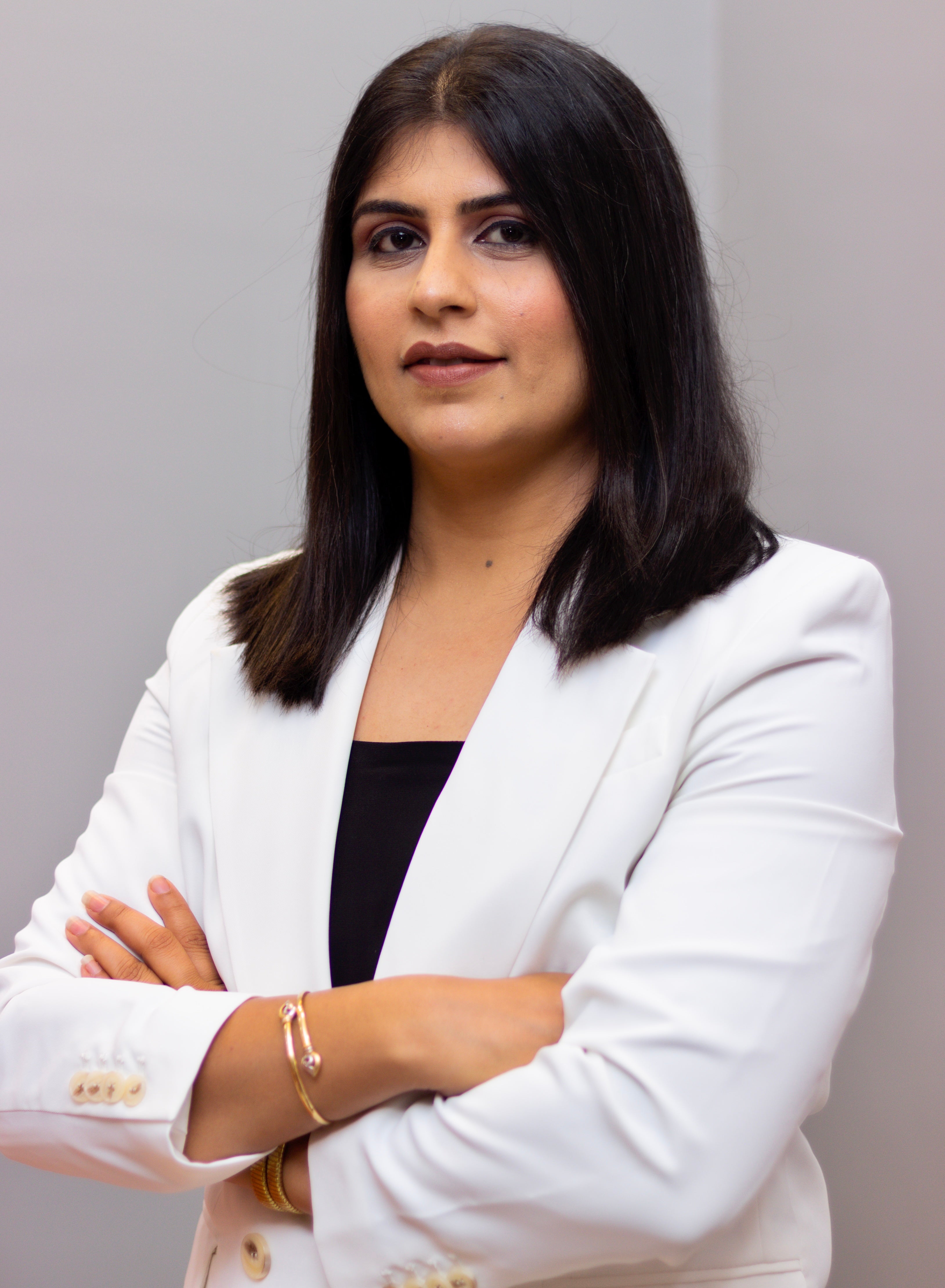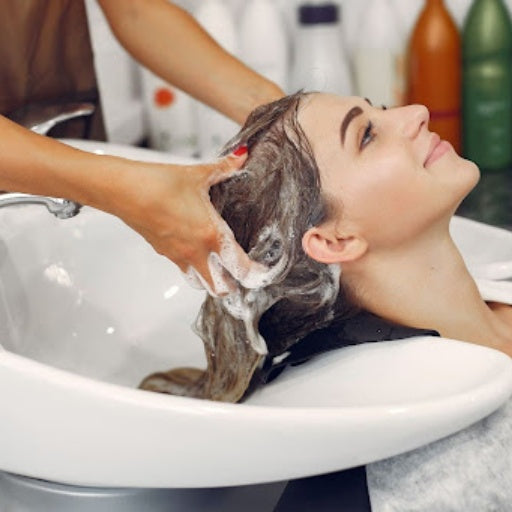Have you ever had one of those mornings where you're getting ready for the day, run a brush through your hair, and suddenly notice a handful of strands staring back at you? Your first thought is usually panic: "Am I using the wrong shampoo? Is it stress? Is something wrong with me?"
I've been there too, and trust me, it can feel worrying. But here's the thing, most of us don't realise straight away, your hair is actually just responding to what's happening inside your body. Yes, hair care products and routines are important, but at the core of it all are your hormones.
These little messengers are the ones who decide whether your hair grows long and thick, feels thin and weak, or starts shedding more than usual. So, if you've ever asked yourself which hormone is responsible for hair growth, let's unravel it together.
Key Hormones Responsible for Hair Growth
Now that we know hormones are pulling the strings, let's look at the main players. Men and women share most of the same hormones, but the way they affect hair is completely different.
For women:
- Oestrogen: This is your hair's best friend. It extends the growth phase, which is why during pregnancy (when oestrogen peaks) hair often looks its best. After childbirth, when oestrogen suddenly drops, many women notice a big shed.
- Progesterone: Works quietly in the background, calming the effects of testosterone. Without enough of it, thinning can happen much faster.
- Thyroid hormones: Whether your thyroid is sluggish (hypothyroidism) or overactive (hyperthyroidism), your hair will notice before you do. Thin edges, brittle texture, or sudden shedding are classic thyroid-related signs.
For men:
- Testosterone: Fuels facial and body hair, but when it converts into another form, it can cut short the growth cycle of scalp hair.
- DHT (Dihydrotestosterone): This is the one most men worry about, because it's strongly linked to male pattern baldness. But interestingly, it also gives them thick beards and chest hair.
- Growth Hormone: Produced by the pituitary gland, it keeps follicles healthy and promotes strong regrowth. Without it, hair often looks dull or grows more slowly.
So, if you're specifically wondering which hormone is responsible for hair growth on the scalp, the main answer is oestrogen for women and testosterone/DHT for men. And behind the scenes, the pituitary gland is the master switchboard that controls how much of these hormones are released.
The Role of Hormones in Hair Growth
Your hair isn't just sitting there, passively growing. It's alive at the root, and that root is directly influenced by your hormones. Think of hormones as the "remote control" that tells your follicles what to do.
Here's how they affect your hair in ways you've probably noticed in everyday life:
- They spark growth: Some hormones literally tell your follicles, "It's time to grow." That's why women often rave about their hair being fuller and shinier during pregnancy, when estrogen is high.
- They manage the rhythm: Hair isn't supposed to grow forever. It has a cycle: grow, rest, shed, repeat. Hormones decide when each phase begins. If they're imbalanced, the cycle gets disrupted, and shedding becomes more obvious.
- They shape texture and volume: Ever felt your hair turn dull and limp after a stressful month? Or noticed it thickens at certain life stages? That's hormones writing their story on your scalp.
- They act differently in different areas: The funny part is that the same hormone can cause scalp thinning but boost beard growth in men. It's all about how your body responds to it.
So, the answer to which hormone is responsible for the growth of hair isn't simple. It's not one hormone but a whole team, working together, sometimes clashing, and showing up on your head.
Natural Ways to Balance Hormones for Healthy Hair
Here's the good news: while we can't control everything about our hormones, we can create habits that gently guide them back into balance. And when hormones are balanced, your hair almost always reflects it.
For men:
- Eat a balanced diet: Protein-rich foods like eggs, fish, and pulses support testosterone balance. Add nuts and seeds for healthy fats. They make a big difference to hair health.
- Stay active: Regular exercise doesn't just keep you fit, it also improves blood circulation to your scalp, delivering nutrients straight to your follicles. Even half an hour of brisk walking helps.
- Stress management: Long-term stress pushes up cortisol, which is terrible for hair. Find your calm, whether it's through meditation, sports, or just taking time to unplug.
For women:
- Seed cycling: This is such a simple but powerful practice. Eating flax, sesame, or pumpkin seeds during different phases of your cycle helps balance oestrogen and progesterone naturally.
- Sleep as medicine: Skipping rest throws hormones into chaos. Aim for at least 7 hours; your body resets during deep sleep, and your hair quietly benefits from it.
- Herbal support: A warm spearmint or chamomile tea cup can soothe hormone fluctuations. Think of it as a calming ritual for both body and hair.
If you've been worrying about how to stop hormonal hair loss, the first thing to know is, you're not alone. It's not about finding an overnight cure (and I wish there was one!), but about making gentle, lasting changes that help your body find its balance again. Over time, those little shifts become the strong foundation your hair needs to grow back healthier and stronger.
Conclusion
So, now we know the answer to which hormone is responsible for hair growth. It's not just one, but a handful of them quietly working together to keep our strands strong and healthy. When they're in balance, our hair thrives. But when life gets busy, stress builds up, or our routines slip, that balance can wobble, and our hair shows it first.
The best part is, you're not powerless. Small steps like eating well, resting enough, moving your body, and caring for your scalp with nourishing hair oil or gentle hair care products can help bring that balance back. Think of it as a little self-care ritual, not just for your hair, but for your whole self.
Remember, your hair is like a diary. It quietly reflects what's going on inside. Treat yourself with patience, listen to the signals, and give your body what it needs. Do that, and your hair will always thank you with strength, shine, and resilience.
FAQs Based On the Hormone Responsible For Hair Growth
-
What hormone imbalance causes hair loss?
High levels of DHT, thyroid disorders, and low oestrogen in women are the most common culprits. If your hair feels weaker without any big changes in your routine, hormones could be the reason.
-
Which female hormone grows hair?
Oestrogen is the hero here. It keeps your hair in its growing stage for longer, giving it more time to get thicker and stronger.
-
How do you know if hair growth is hormonal?
Pay attention to the timing. If shedding or thinning starts around puberty, after pregnancy, during menopause, or after a stressful period, chances are it's linked to hormones.
-
Can you stop hormonal hair loss?
In many cases, yes, you absolutely can. The key is figuring out what's going on beneath the surface. Once you know the root imbalance, you can start making small, healthy changes that support your body from within. Pair that with some gentle scalp love, like massaging in a nourishing hair oil, and you'll be giving your strands the best chance to recover, strengthen, and grow back naturally.







